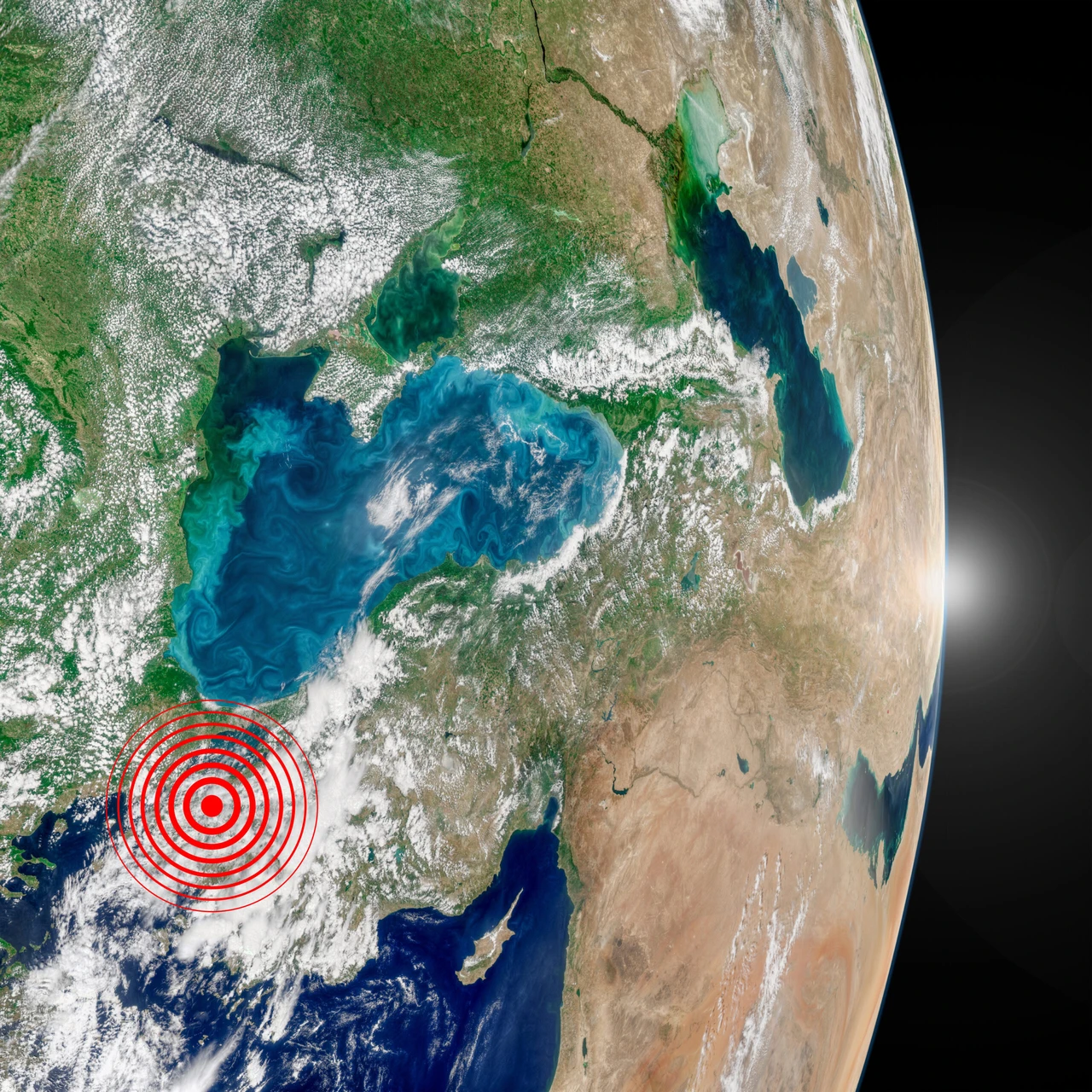AI’s 30-day earthquake prediction for Istanbul sparks debate among experts
 Earthquake icon in Türkiye's map, September, 2024. (Adobe Stock Photo)
Earthquake icon in Türkiye's map, September, 2024. (Adobe Stock Photo)
Cemil Emre Yavas, a Turkish researcher based at Georgia Southern University in the United States, has led a team that developed an AI algorithm designed to predict earthquakes with remarkable accuracy.
According to Yavas, the system has shown a prediction success rate of 91.65% for Istanbul’s potential seismic events, offering forecasts as far as 30 days ahead. The announcement has sparked debate on the role of AI in predicting earthquakes and the consequences of making early predictions.
Expert skepticism on AI earthquake predictions: ‘We can’t yet predict earthquakes’
However, some experts urge caution. Earthquake scientist professor Naci Gorur, who has long studied seismic events in Türkiye, cautions against relying on these predictions.
“To truly claim we predict earthquakes, we would need definitive answers on timing, location, magnitude, and occurrence period,” he explained, highlighting the four main criteria that must be met. “So far, we have never been able to answer all of these questions,” he noted. “As of now, it’s simply not possible.”

‘Predicting and warning could be as harmful as earthquake itself’
Gorur expressed concerns about the potential impact of premature or incorrect predictions, stating, “Saying ‘we predicted it’ can be as dangerous as the earthquake itself.” Such announcements, he argued, can lead to mass anxiety, mobilize local and national resources, and cause disruptions for millions.
“Evacuating areas, restructuring people’s lives – these are not simple tasks. If inaccurate predictions start to circulate, public health could be put at great risk,” he said.
He emphasized that if states were to implement predictive systems, they would need strong technological support and regulatory frameworks in place.
Historical precedents and perils of false security
Gorur referenced an example from China, where earthquake prediction led to success but also tragic consequences. He described the 1975 Haicheng earthquake, as the only earthquake accurately predicted three days in advance.
Though 90,000 people were evacuated, preventing an estimated 150,000 deaths, another quake just 18 months later led to disaster. “No one predicted that quake, and the misplaced confidence cost 242,000 lives,” he said.
Predictive limits: What is and isn’t possible in earthquake forecasting
Another respected geoscientist, professor Ovgun Ahmet Ercan, echoed concerns, stressing that partial predictions do not necessarily protect lives or property.
“Knowing an approximate time for an earthquake can be helpful,” he said, “but claiming certainty is different.”
Ercan questioned the algorithm’s reliability, pointing to unanswered questions: “Where did they get their data? What parameters did they use? What’s the margin of error?”
He highlighted the challenge of accurately predicting an earthquake’s precise location, time, and magnitude – criteria no existing technology can yet meet.



